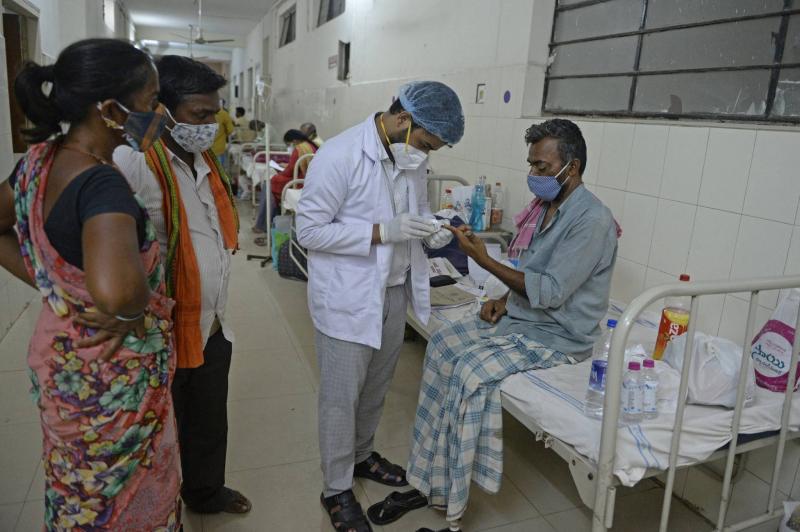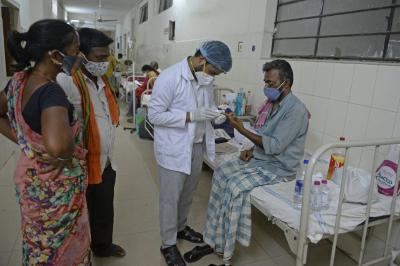Scientists in India are concerned that children might be more susceptible to the COVID-19 virus during the third wave of the pandemic, which they believe will be "more severe" due to mutations that weaken the immune system, potentially leading to additional complications like "black fungus." Black fungus is a rare type of fungal infection observed in some COVID-19 patients, characterized by the growth of thread-like structures inside and around blood vessels, and it can be life-threatening for diabetes patients or those with severely weakened immune systems.
The infection often targets the sinuses, brain, or lungs, but it can also spread to other areas of the body, such as the digestive system. According to Dr. Jessal Sheth, a pediatric consultant at Fortis Hospital in Mumbai, children are less likely to contract black fungus compared to adults, although there have been reports documenting such cases following COVID-19 infection. Sheth noted that malnourished children are at a higher risk of developing black fungus compared to their well-nourished peers.
He emphasized the importance of not ignoring certain symptoms associated with black fungus in children to prevent severe complications. As reported by "India," Sheth stated, "Parents should monitor a range of symptoms related to black fungus such as headaches, swelling in the forehead or one side of the face, the appearance of black sores around the nose, blurred vision, chest pain, cough, and difficulty breathing."
Doctors advise that to prevent children from contracting black fungus, parents should ensure that they wash their hands frequently and avoid touching their eyes, nose, and mouth with unclean hands. According to Sheth, early detection and timely treatment are "key" to saving children affected by black fungus, which is treated with antifungal medications and surgery based on clinical diagnosis.




